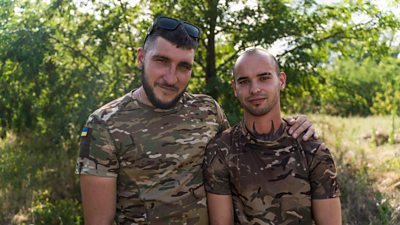“They sacrifice their professional and personal lives (for) their country. Yet at the same time, they still do not have the opportunity to freely and without fear hold their partner's hand while walking down the central streets of Kyiv. And they cannot legally register a relationship so that if they are injured, their partners could visit them.”
To be a member of LGBTQI+ communities in Ukraine still means facing widespread discrimination and targeted misinformation.
As part of our largest-ever research project on gender in Ukraine, we examined the experiences and portrayals of, and attitudes towards, women and LBGTQI+ communities. What followed was Vydymi (Visible) – a landmark series of 10 short documentary films, commissioned by Ukrainian public broadcaster Suspilne (Public), profiling 10 Ukrainian women and members of LGBTQI+ communities and their diverse experiences in wartime.
The films aim to challenge stereotypes and make the contributions of women and LGBTQI+ communities to the war effort, humanitarian action, and society in general more visible. By profiling ordinary people doing extraordinary things, and highlighting these previously invisible heroes, they hope to ultimately contribute to a more inclusive society.
The series was released in August 2023 on Suspilne’s YouTube channel, (link goes to a third-party site).
The films include:
- Volunteers Vlad Shast, who helps families affected by occupation, and Irena Skakun, who rescues animals from frontline areas
- Tetiana and Oksana, creators of the Deoccupage project, who are raising funds to establish a social centre for war veterans
- Lesya Lavrenova, a drone operator, who shares her journey as a transgender woman in the military
- Tetyana Mordach, the country's first female sapper diver, who would have been barred from the high-risk military role until a few years ago
- Pavlo Lagoyda and Vlad Polischuk, a gay couple serving in the Armed Forces of Ukraine - who do not yet have the right to legalise their partnership or obtain spousal survivor benefits, should one of them be killed in the conflict
- Lawyer Mariia Klyus who is working to change Ukraine's laws on registered partnerships
About our research:
These films responded to our research findings that content on LGBTQI+ communities and their needs, issues and ideas was limited to social media and online. Mainstream and traditional media rarely featured members of LGBTQI+ communities, and if they did, often portrayed them in stereotypes. LGBTQI+ communities also face targeted disinformation from both external and domestic sources.
Our research also found that a sense of unity in wartime seems to have driven some acceptance; young women in particular expressed support for LGBTQI+ communities and their rights. However, older women and men had more negative attitudes, especially around public displays of affection between same-sex couples, advocacy on LGBTQI+ issues, and equal rights.
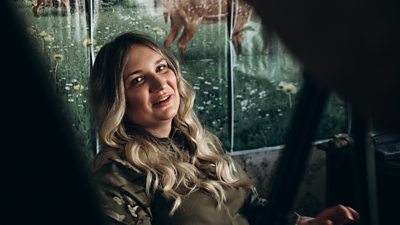
How our audiences engaged
We screened four of the Visible films with audiences to evaluate their perceptions.
Among our findings:
- Participants found the films engaging, and perceived the protagonists and their stories positively. This included participants who previously held negative or neutral attitudes towards LGBTQI+ communities.
- The films generated tolerant discussion. Research participants with a previously neutral attitude towards LGBTQI+ communities tended to side with LGBTQI+ communities and their rights when they heard intolerant, offensive or stereotypical statements made by other participants.
- The stories helped to normalise the lives of LGBTQI+ individuals by raising awareness of the issues they face.
- LGBTQI+ research participants liked the films’ positive portrayal of the courage and confidence of various LGBTQI+ individuals. But they worried that Ukrainian society is not ready for scenes showing intimacy between LGBTQI+ people, or adoption of children by same-sex parents.
- Emotions played a strong role in people’s engagement in the films. Research participants saw the film’s protagonists as ordinary people, felt their pain and were compassionate about their aspirations. However, most research participants were negative about LGBTQI+ people having equal rights to have families or to inherit property from same-sex partners. They also rejected demonstrations of intimacy, the normalisation of LGBTQI+ communities and the idea of LGBTQI+ families adopting children.
These films increased the awareness of, and interest in, LGBTQI+ individuals’ lives, showing the potential of this type of content for contributing to more equal societies.
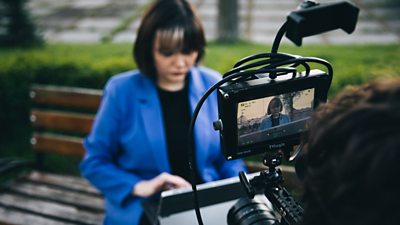
Our recommendations
Shifting attitudes towards marginalised groups requires repeated work over time. These recommendations aim to support positive influence and more inclusive attitudes through media and communication.
- Diversify the content: Most content about people from LGBTQI+ communities remains limited to social media, and much of it is created by NGOs. Traditional media need to showcase these communities and how the war affects them. TV and radio are more likely to reach people over 55, who tend to demonstrate relatively negative attitudes to LGBTQI+ communities.
- Frame your content: Media content focused on LGBTQI+ communities and issues needs to be engaging and influential. Focusing on the importance of equal rights, justice and tolerance for all – rather than highlighting the plight of a minority group – could build on the country’s strong sense of national unity. Focus on relateable shared experiences to create empathy and foster understanding, and on high-quality, engaging storytelling that focuses on individuals as part of society, without explicitly focusing on their LGBTQI+ identity.
- Engage young people: Use formats and channels based on their media habits, and create content that addresses underlying negative attitudes and stereotypes towards LGBTQI+ communities. Showcase what equal rights mean in everyday life and for a society.
- Create content over time: It takes time to move from awareness and empathy to more positive attitudes; this will require ongoing series and content across multiple platforms that represents LGBTQI+ communities in a positive light.
Read the project briefing
The films were created by Cofounder, commissioned by Suspilne working in partnership with ���Ͽ�����¼ Media Action. This initiative is part of the Promoting Inclusion and Combatting Discrimination project, implemented by the National Democratic Institute (NDI) and funded by the Swedish International Development Cooperation Agency.
Find out more about our work with Suspilne on gender and women’s inclusion in decision-making in Ukraine here.
You can learn more from our research on how women are being impacted by the war in Ukraine here.
We're at Geneva Peace Week talking about our work in Ukraine - watch our digital session (leads to third-party site).
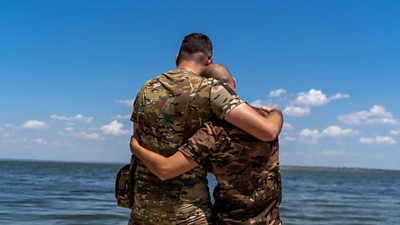
Our projects in Europe and Caucasus
-

Support to independent media in the Eastern Partnership countries
We are working in Eastern Europe and the Caucasus to support public interest media. -
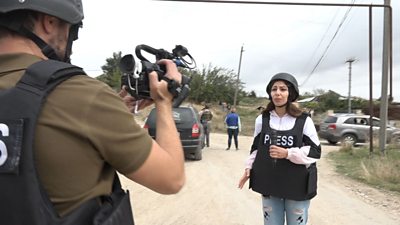
Strengthening Armenia’s vibrant independent media
We are working with students and public interest media to improve journalistic standards and ensure access to objective, impartial and trustworthy information. -
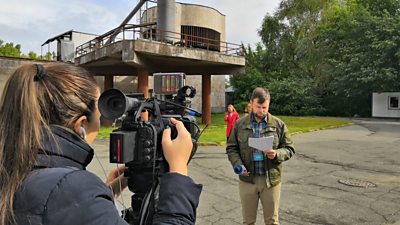
Supporting Ukraine’s new Public Service Broadcaster
Through two projects, we’re supporting the newly-established National Public Broadcaster in Ukraine, UA:PBC, to improve its capacity as an independent, impartial news broadcaster. -
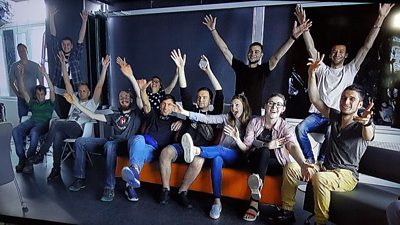
Supporting independent news in Ukraine
Media Action is working on a Good Governance Fund-supported programme to enhance the capacity of the Ukrainian TV station – Hromadske TV.
